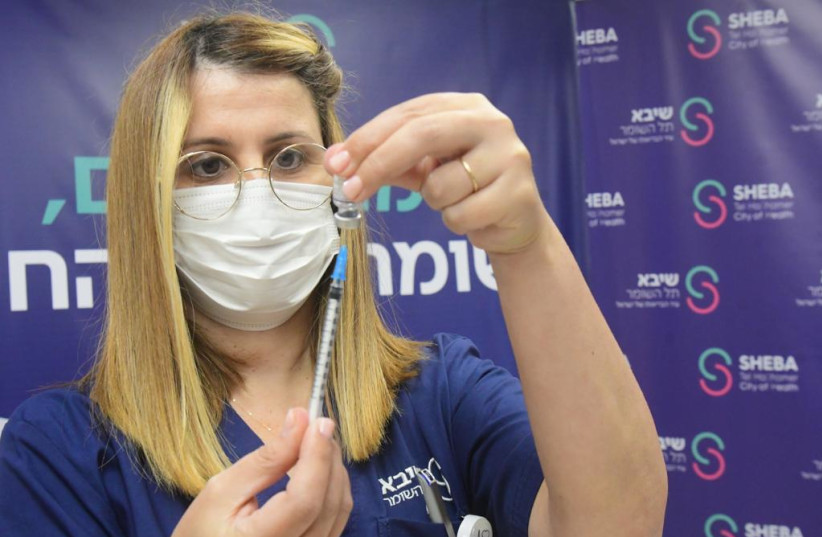Israel registered almost 5,000 new coronavirus cases on Thursday, three times more than the previous week and the highest since September, as Health Ministry Director-General Prof. Nachman Ash approved a fourth vaccine for the most vulnerable populations in the country, immune-suppressed patients and residents of old age and welfare institutions.
“Here and all over the world we have lost control of the spread of the pandemic,” said Prof. Eran Segal, a computational biologist at the Weizmann Institute of Science and an advisor to the government.
“Already today there is a high chance of encountering an infected individual,” he further wrote on Twitter. “In three days the chance will double. In a week, it will be four times more than today. The best protection against a serious illness is the vaccine, and there has never been a better time to get vaccinated.”
Indeed, the rapidity of the surge in the cases due to the Omicron variant has been unprecedented.
In the past seven days, the country recorded almost 20,000 new cases, marking a 150% increase from the previous week. Around 40% of them were people who had received a booster.

While the Pandemic Response Team which advises the Health Ministry already recommended a fourth vaccine also for all Israelis over 60 on December 21, Ash has yet to approve the decision.
Meanwhile on Thursday night he okayed the shot for several categories of patients with severe immuno-depression, including transplant recipients, patients with auto-immune or rheumatological diseases that are treated with specific drugs, and patients with blood cancers.
On Friday, Ash also approved offering the fourth vaccine in old age homes participating in Magen Avot V'imahot protocol, geriatric hospitals and people in Labor, Social Affairs and Social Services Ministry out-of-home frameworks for people with two diseases. Employees of the institutions who wish to do so will also be allowed to be vaccinated with the fourth dose.
Yuli Gat, the head of Israel's old-age home association, praised the decision.
"We hope that the Israeli government will protect the elderly beyond the fourth booster and will also address the issue of manpower in institutions in order to operate rapid testing systems and fund their struggle with the virus in order to prevent institutions from collapsing," he said.
At the moment, Israel has not witnessed a significant increase in serious morbidity: the number of serious patients, which fluctuated between 80 and 90 for most of the past two weeks stood at 93 on Friday, while only two people died of COVID in the previous seven days.
In total, there were 169 hospitalized patients in Israel.
However, by the end of January, Israeli hospitals could have to cope with between 1,000 to 2,800 COVID-19 patients in serious condition, according to a report by Hebrew University of Jerusalem's Prof. Yinon Ashkenazi that was published on Thursday. So far, the record of serious patients in the country was recorded during the third wave in January 2021, then the number topped 1,200.
Israel could see as many as 20,000 new cases per days in the next month, which would also cause the rise in serious patients.
According to Kan, the government's working assumption is that the number of daily confirmed cases will peak in about two-and-a-half weeks and the number of serious patients will peak in about three-and-a -half to four weeks.
Steps being taken to prepare for the wave include preparing for hundreds of home hospitalizations; speeding up the addition of 90 beds in intensive care units, which were only supposed to be added by the end of 2022; adding personnel to old-age homes and moving personnel to COVID wards from other hospital wards, KAN also reported.
